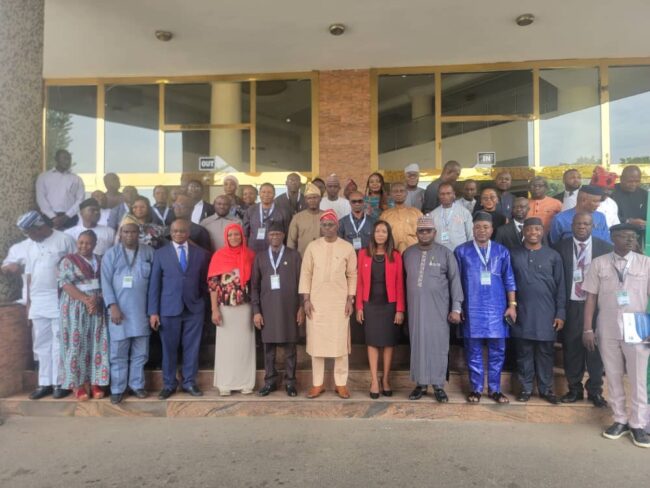The Global Environment Fund (GEF), in partnership with the United Nations Food and Agriculture Organization (FAO) is implementing the Food Systems, Land Use, and Restoration (FOLUR) in Ondo state and Cross River State with the target to protect the forest reserves from encroachment as a result of agricultural activities.
The Country Representative of the FAO Dominique Kouacou who was represented by Mrs Nifesimi Ogunkua at the Opening Ceremony of FAO-GEF 7 FOLUR National Inception Workshop with the theme “Promoting Integrated Landscape Management and Sustainable Food Systems in the Niger Delta of Nigeria”, said this collaborative effort underscores FAO’s commitment to advancing agricultural landscape in Nigeria and contributing to the broader goals of sustainable development.
He said the landscape of Nigeria’s Niger Delta region holds tremendous ecological significance, recognized internationally for its lowland tropical rainforests with high conservation value and carbon stock.
The Acting FAO Country Representative however said unfortunately, the region is experiencing alarming rates of deforestation, primarily driven by agricultural expansion, especially in Cocoa and Oil Palm cultivation.
“In response to this critical situation, Nigeria has actively sought to participate in the GEF-7 Food Systems, Land Use, and Restoration Impact Program.
“The GEF-7’s FOLUR-IP Project is designed to transform the Niger Delta’s cocoa and palm oil production systems and landscapes towards sustainability and resilience, delivering multiple environmental and social benefits through its compartmental activities.
According to him, the activities include
“development of integrated landscape management (ILM) systems, promoting sustainable and inclusive cocoa and oil palm value chains, conservation and restoration of degraded forest ecosystems, and knowledge management and Monitoring and Evaluation.
“The implementation of the GEF-7 FOLUR-IP project is anticipated to yield numerous benefits, including, 795,200 hectares of landscapes covered by Integrated Land Management plans, 110,000 hectares of land under sustainable practices with at least a 20% increase in the yield of cocoa and oil palm per hectare by project closure.
“Restoration of 18,800 hectares of degraded forest landscape, Sequestration of 15.6 million tons of CO2, 10,000 people benefiting from income diversification interventions, with a target of at least 50% women.
The National Project Coordinator of FOLUR, Professor Oladapo Akinyemi, said the project supported by Global Environment Facility (GEF) being implemented by the FAO and the Forestry Research Institute of Nigeria (FRIN) is the operational partner to the FAO.
He explained that the project is basically promoting land use system and food system in Niger Delta region with focus on Ondo state and Cross River state.
Professor Akinyemi further noted that the project is trying to focus on how to develop the country’s degraded forest so that it will be replanted with forest trees and make sure that there is longer the degradation of the forest.
“It is just a way of trying as much and possible to make sure that there is smart agriculture that involves the planting of trees, the use of agro-forestry system to make sure that that the small scale farmers or the large scale farmers are not encroaching protected areas.
“It has been discovered that agriculture expansion is one of the things causing deforestation at the global level. The essence of this project is to ensure that the farmers are no longer encroaching into the forest reserves and other protected areas.
“The project is also aimed at training the farmers in such a way the Central Bank of Nigeria (CBN) through the Anchor Borrowers Program (ABP) will provide funds for the farmers to increase their yield. Through this project, there is a designated number of hectares of land that will be restored
“GEF is providing the grant for this project, supported by the FAO, the Federal Government is also co-funding the project in terms of human capital support, Ondo State has promised to support the project with $7500 same as the Cross River State government. The CBN has promised to release loans to the farmers under the ABP so that they are practice agriculture in a sustainable manner”, he added.
The Minister of State for Environment and Ecological Management, Dr Iziak Salaco said this inception workshop is a response to Nigeria’s request for FAO-GEF developmental project, particularly on food production and land restoration.
He said the implementation of this project especially in the Niger Delta region of Nigeria will unlock the potentials of the region to regain its pride of place in food production and its status as a global biodiversity hotspot.






